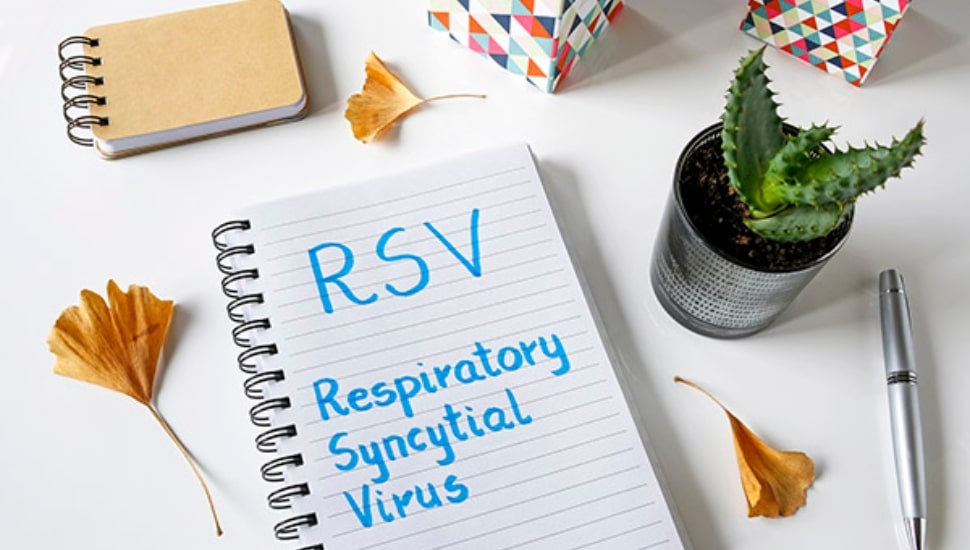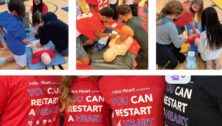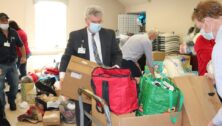Chester County Hospital Sheds Light on RSV: The Respiratory Illness You Should Know About


If you’re a parent or caregiver, you know there are a lot of illnesses that can affect children. Conditions like ear infections, the stomach flu, the common cold, and hand, foot, and mouth disease have become commonplace in many households. Sometimes, it might feel like your child is sick more often than they are well.
This year, one illness that is spreading quickly among children is RSV (Respiratory Syncytial Virus). RSV is a type of respiratory illness that isn’t new; it dates back to the 1950s. It’s also common — most children get RSV at least once before they turn two years old.
But in the past few months, RSV cases have been on the rise. As of January 2024, cases of respiratory illnesses, including RSV, are elevated in most areas of the nation.
RSV Symptoms
Respiratory illnesses come in all shapes and sizes. The common cold, influenza, and COVID-19 all impact the respiratory system, which includes your airways, lungs, and blood vessels. They also have similar symptoms, such as a cough, fever, and sore throat, and tend to peak in the fall and winter months.
RSV is also a virus that causes respiratory illness. While some adults might have RSV and not show any signs of illness, infants under one year almost always develop symptoms. For many children, RSV is similar to the cold, and it’s not a major cause for concern.
But in children less than six months old, babies born prematurely, and children with other risk factors, the chance of severe illness is higher.
Why Is RSV on the Rise?
RSV has long been an illness of concern for children. However, this season, RSV is on the rise.c
Part of the reason for this is that measures to prevent the spread of illnesses, particularly COVID-19, have decreased significantly. The rise of cases in older adults may also be attributed to the fact that the U.S. population over 60 is bigger than ever before.
According to Jason Komasz, Medical Director of CHOP Newborn and Pediatric Care at Chester County Hospital, RSV also spreads easily. “It transmits through contact with infected mucus, saliva, or nasal discharge, such as a cough, sneeze, or kiss,” said Komasz. “It can also spread if your child touches an infected surface, like a toy or crib rail, and then touches their face without washing their hands. On hard surfaces, the RSV virus can survive for many hours.”
As with many illnesses, people with RSV are often contagious a day or two before symptoms begin. Despite precautions to keep children who are ill at home, RSV can still spread — especially without the right safety measures.
How Can I Protect My Child From RSV?
RSV may sound scary, but serious illness is preventable. By taking precautions to protect you and your family, everyone can stay healthy this season.
Avoiding RSV starts with daily preventative actions. As a parent or caregiver, encourage your child to do the following:
- Wash their hands frequently with soap and water for at least 20 seconds (or the time it takes to sing “Happy Birthday” twice)
- Avoid touching their face with unwashed hands.
- Avoid close contact with others, including kissing and sharing cups or eating utensils.
Brett Francis, who is a pediatric nurse at Chester County Hospital, advises that parents may need to be more proactive with young children.
“For instance, wash their hands when they get home from school and carry hand sanitizer when you’re on the go,” said Francis.
According to Francis, parents play an essential role in the spread of illness. “If your school-aged child is sick, keep them home and teach them to cover their coughs and sneezes with their shirt sleeve or a tissue.”
“If your child is in daycare, be sure the facility is helping enforce these measures by cleaning frequently touched surfaces, such as toys,” said Francis.
The RSV Vaccine for Infants and Toddlers
If you have a baby under eight months old or one on the way, there are now two ways to protect them:
- RSV vaccination during pregnancy, which is given between 32 and 36 weeks of pregnancy during RSV season.
- RSV immunization during infancy (under eight months old) if they are born during or going into their first RSV season.
Your child may also be eligible for an RSV immunization if they are between 8-19 months old, entering their second RSV season, and have a higher risk of severe illness due to chronic lung disease from premature birth, severe immunocompromisation, severe cystic fibrosis, or American Indian or Alaska Native ancestry.
Keeping an Eye Out for Signs of Illness
Knowing and watching for signs of RSV helps prevent complications. Pay attention to symptoms in your child, which may not all appear at the same time. These symptoms include:
- coughing
- sneezing
- runny nose
- decreased appetite
- wheezing
- fever
In young babies, it can be difficult to tell if they’re sick. You may only see signs like decreased activity, trouble breathing, and irritability.
While most infections with RSV will run their course in a week or two, stay alert for signs of severe illness. Call their pediatrician right away if you notice:
- Trouble breathing, including fast breaths, short breaths, and rhythmic grunting noises.
- Chest wall retractions, which is when their rib cage caves in and looks like an upside “V” under their neck.
- Signs of dehydration, such as less than one wet diaper in eight hours.
- Skin, lips, or nail beds that are pale, gray, or blue-colored, depending on the skin tone.
- Reduced alertness and activity.
- Symptoms that are getting worse.
Staying Healthy During RSV Season and Year-Round
Children getting sick is a fact of life. For some families, it can feel like an every-week occurrence. During respiratory illness season, it might feel particularly overwhelming to keep your child healthy.
Practicing healthy habits starts young, and it sets your child up for a healthy future. By making things like washing hands, covering your coughs, and staying away from people who are sick a part of your family’s routine, you can keep everyone healthy during RSV season and every day.
Learn more tips from Chester County Hospital to safeguard your health, and if your child ever requires hospitalization, take comfort knowing that CHOP Pediatric Care at Chester County Hospital is a joint pediatric service of The Children’s Hospital of Philadelphia (CHOP) and Chester County Hospital.
Connect With Your Community
Subscribe to stay informed!
"*" indicates required fields


































![95000-1023_ACJ_BannerAd[1]](https://vista.today/wp-content/uploads/2023/03/95000-1023_ACJ_BannerAd1.jpg)













